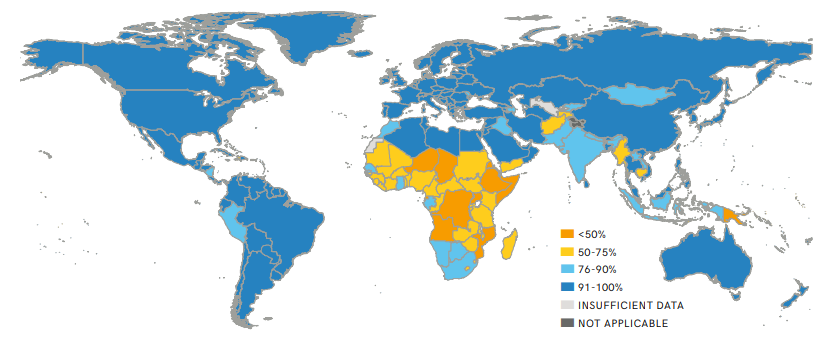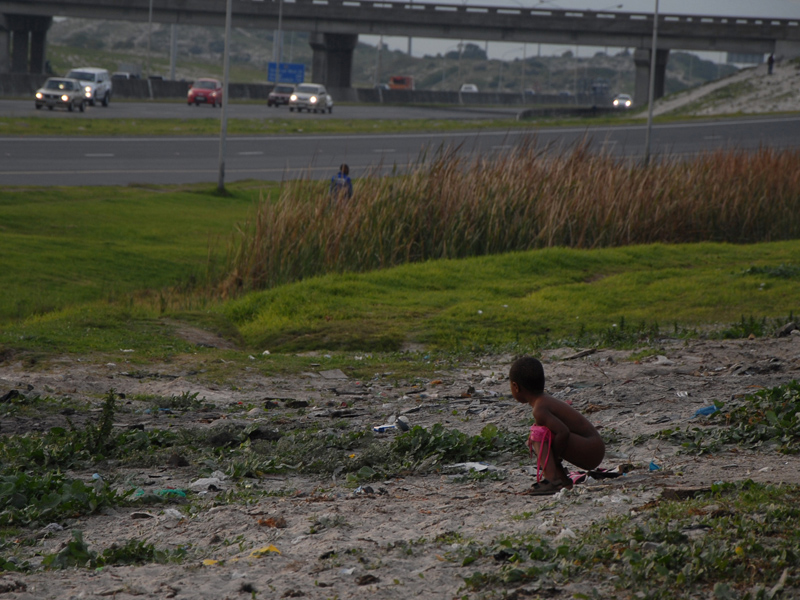Introduction: The Politics of Water in Africa!
Hello, and welcome to my blog on the politics of water and development in Africa!
To begin, I must preface I have never visited Africa! Perhaps this is what spurred me to initially select this module. However, as satirically expressed by Binyavanga Wainaina (2005), Africa is often spoken about in a distorted sense. It is often simplified as if it were a single country, with homogeneous communities roaming across romanticized landscapes in search of a Western saviour. Therefore, upon reflection, in order to avoid potential generalisations, I'll engage with case-specific examples.
As a brief introduction, Africa entails the lowest % of national populations with access to 'at least basic drinking water services' (WH0-UNICEF, 2017). This stark contrast within the global context is illustrated in figure 2 below.
Similarly, figure 2 illustrates water scarcity in Africa where much of the continent is dominated by regions with >1700 cubic M/capita/year (Damkjaer and Taylor, 2017).
 |
| Figure 2: Map of water scarcity in Africa defined by the WSI (Damkjaer and Taylor, 2017) |
Physical causes include low precipitation where for example the Sahara desert receives only 0-3 inches annually. Similarly, river flow in Southern Africa is the most variable globally! (Fanta et al., 2001) Furthermore, given higher air temperatures in the Tropics, precipitation is often more intense depleting the air of available moisture (Taylor et al., 2009).
Population growth and urbanisation compound the issue. The population in cities such as Lagos and Nairobi experienced a 7x increase leading to the expansion of informal settlements (Hall et al., 2017). Inadequate governance therefore results in unsustainable stress on municipal resources contributing to the water scarcity patterns.
Looking forward, this blogs aims to unpack the various political dynamics and mechanisms which produce and reproduce the contrasting water patterns across the continent. It will navigate through water wars, management strategies and sanitation.



Comments
Post a Comment